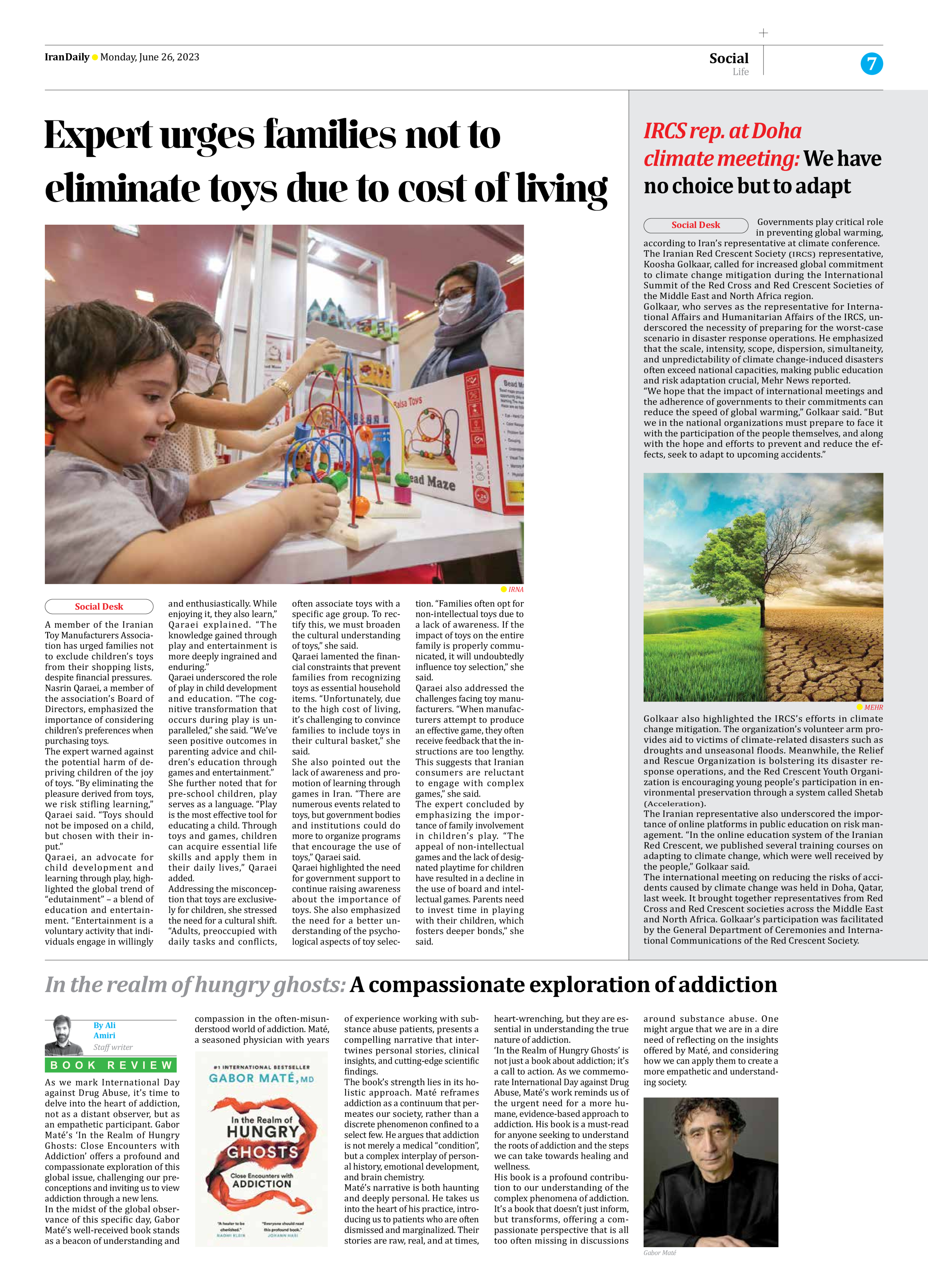
In the realm of hungry ghosts: A compassionate exploration of addiction
By Ali Amiri
Staff writer
As we mark International Day against Drug Abuse, it’s time to delve into the heart of addiction, not as a distant observer, but as an empathetic participant. Gabor Maté’s ‘In the Realm of Hungry Ghosts: Close Encounters with Addiction’ offers a profound and compassionate exploration of this global issue, challenging our preconceptions and inviting us to view addiction through a new lens.
In the midst of the global observance of this specific day, Gabor Maté’s well-received book stands as a beacon of understanding and compassion in the often-misunderstood world of addiction. Maté, a seasoned physician with years of experience working with substance abuse patients, presents a compelling narrative that intertwines personal stories, clinical insights, and cutting-edge scientific findings.
The book’s strength lies in its holistic approach. Maté reframes addiction as a continuum that permeates our society, rather than a discrete phenomenon confined to a select few. He argues that addiction is not merely a medical “condition”, but a complex interplay of personal history, emotional development, and brain chemistry.
Maté’s narrative is both haunting and deeply personal. He takes us into the heart of his practice, introducing us to patients who are often dismissed and marginalized. Their stories are raw, real, and at times, heart-wrenching, but they are essential in understanding the true nature of addiction.
‘In the Realm of Hungry Ghosts’ is not just a book about addiction; it’s a call to action. As we commemorate International Day against Drug Abuse, Maté’s work reminds us of the urgent need for a more humane, evidence-based approach to addiction. His book is a must-read for anyone seeking to understand the roots of addiction and the steps we can take towards healing and wellness.
His book is a profound contribution to our understanding of the complex phenomena of addiction. It’s a book that doesn’t just inform, but transforms, offering a compassionate perspective that is all too often missing in discussions around substance abuse. One might argue that we are in a dire need of reflecting on the insights offered by Maté, and considering how we can apply them to create a more empathetic and understanding society.







